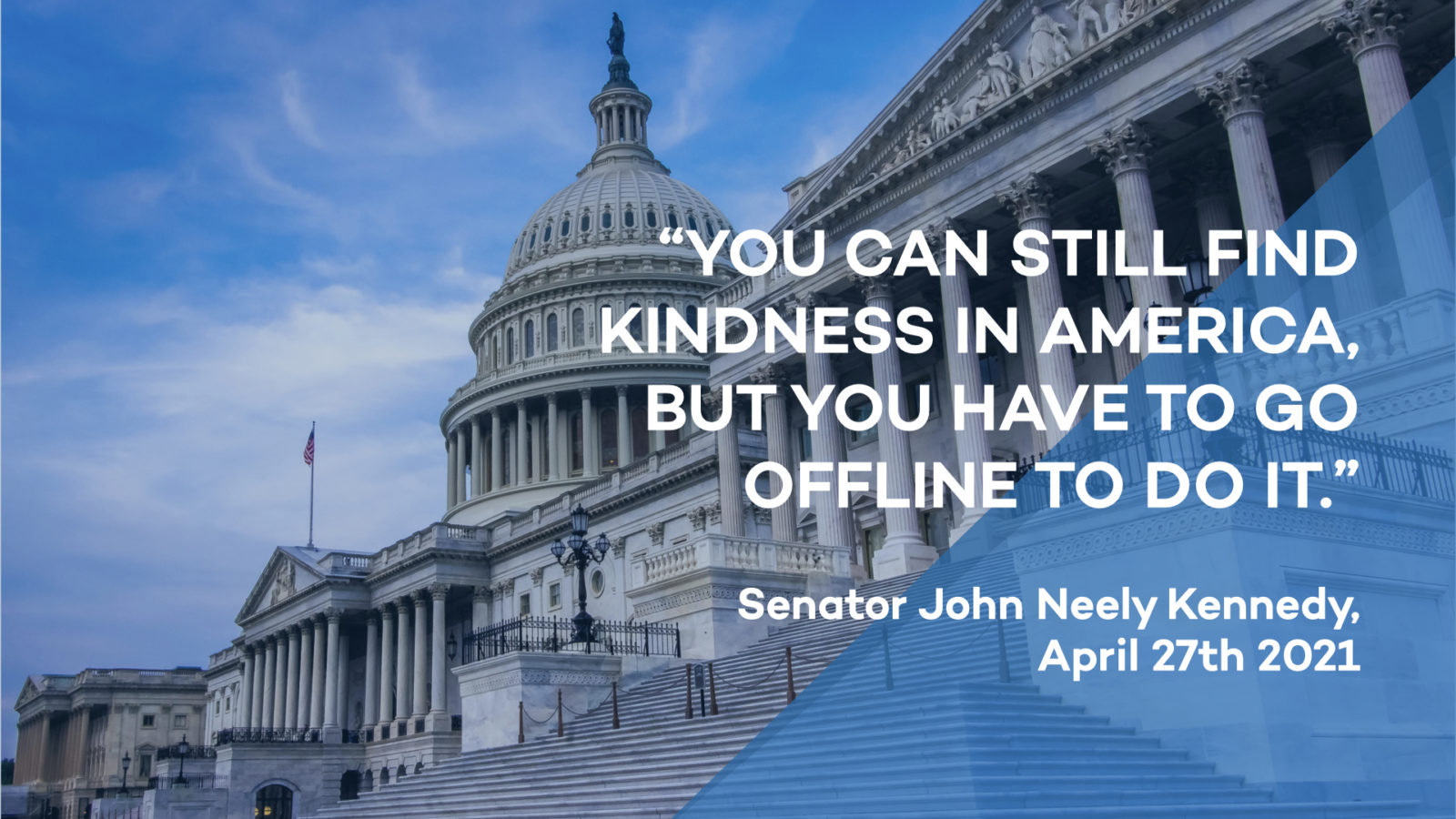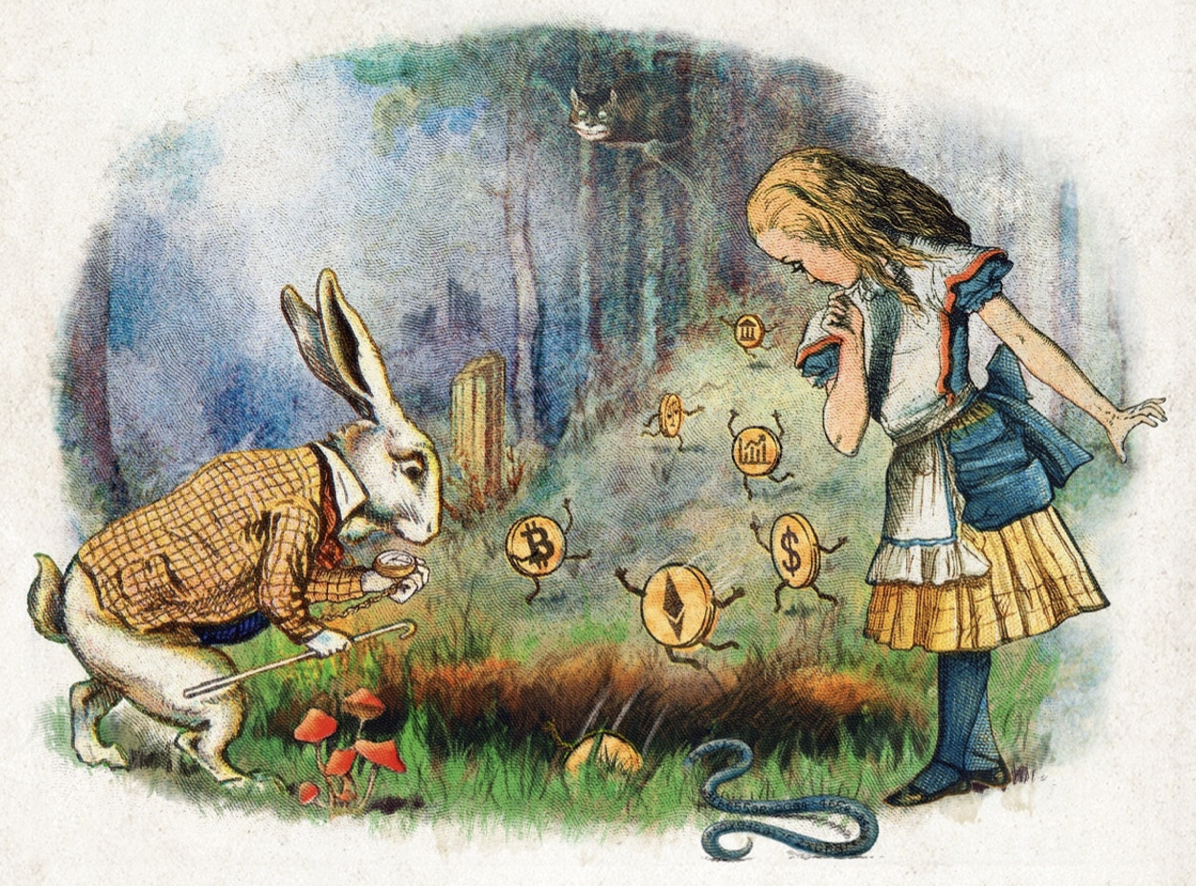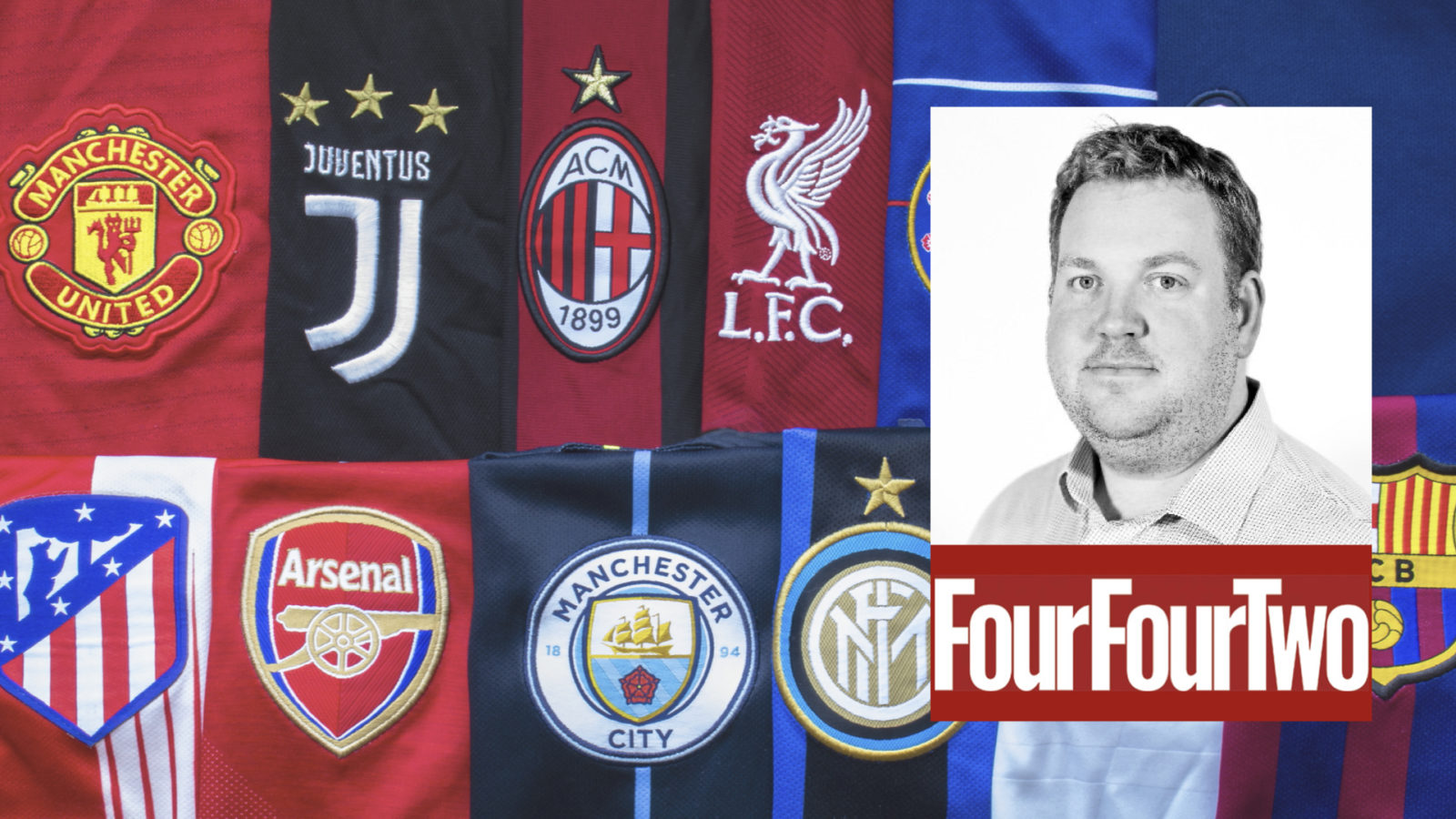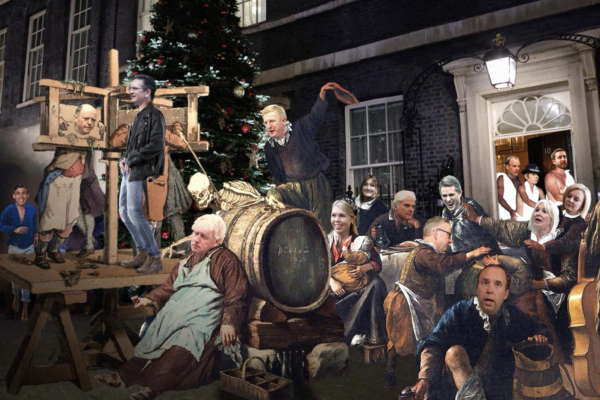The Year in Media: 2021, and the metaverse anon
[Main image courtesy of Cold War Steve, satirical artist & FIPP speaker]
As we move into the holiday season, we look back on a year of change. The Economist launched its first NFT, Amazon bought MGM, and in Afghanistan the media landscape shifted seismically as a female anchor was broadcast interviewing a Taliban spokesperson. Meanwhile, as the rest of us endeavoured to return to real-world events, Facebook went Meta, and there were BIG deals too throughout the traditional magazine universe. The Media Weekly morphs into the Media Year this week, as we take a whistlestop tour of 2021…
Regulation, Regulation, Regulation

The media year began on a sinister note, as supporters of the outgoing US President stormed the Capitol building. Of course, the real-world assault on democracy had originated in the digital realm, and the events of January 6th served as a wakeup call to lawmakers around the world. FIPP President & CEO, James Hewes, summarised the key issues – and offered a potential solution – in his first open letter of the year:
“Prior to the current crisis, Facebook was already facing a host of legal and regulatory challenges in markets across the world. These were mostly focused on a combination of their monopoly positions in the advertising market and their disregard for copyright. 2021 might well be the year when they face the further challenge of being regulated in the same way as broadcasters or newspapers, forcing them to assume responsibility for the content that appears on their platform.”
And face further challenges they did, as scrutiny of these platforms took on renewed focus. From combatting fake news around Covid-19, to China’s tightening grip on the media tech sector, and beyond to Google’s relationship with publishers in individual markets around the world, regulation became one of the key talking points for our industry, and remains so today.
To help stay on top of it all, we launched the Global Media Tech Regulation Tracker – a live document that monitors the latest goings on across media tech policy, regulation, and legalities from week to week and market to market. It’s currently up to 30+ markets around the world, including the latest from the UK as the country’s Draft Online Safety Bill gathers momentum.
Sometimes we must come full circle to find the truth

An obscure quote from season 3 of the X-Files circa 1995 for you there, so if you got that one give yourself a point in the Christmas quiz and please help yourself to a mince pie…
The relevance here is that in a year that began big on revenue diversification, we ended up with some strong evidence that the global advertising market is seeing a return to prosperity. For publishers of course, this is good news, as they enter 2022 not only with a broader range of monetisation options available, but also the ability to deliver premium environment, contextually targeted ads in the post-cookie era.
In a nutshell, monetisation matters:
- In March, Google announced that with the end of third-party cookies, it intends to stop personalised ad-tracking altogether. And while we now know that there is a little more breathing space in terms of final phase-out, media owners have rightly been weighing up their options…
- At FIPP’s newly launched Direct-to-Consumer (D2C) conference in June, we heard from a range of expert speakers in the digital membership and subscriptions space, about how media owners could wean themselves off the advertising dollar, and leverage a more audience revenue-based approach.
- In November, we spoke to The Washington Post’s Head of Commercial Product, Jeffrey Turner, about how Zeus Prime is opening up the opportunities of lucrative first-party data solutions to the wider industry.
- More recently, as the world began to take tentative steps out of the Covid-19 pandemic, Conde Nast reminded us of the importance of physical world monetisation, with the appointment of the company’s first ever head of global events.
- And throughout the year, we’ve witnessed the undeniable rise of NFTs, further exemplifying that – in a digitally-driven economy – the producers of content are ideally placed to leverage such revenue streams.
- But then, when all hope seemed lost for the traditional advertising model, three major US forecasting companies (IPG Mediabrands’ Magna, WPP’s GroupM, and Publicis Media’s Zenith) announced that global ad revenues are set to hit record figures for 2021.
As we move into 2022, there are undoubtedly more viable revenue options available for the monetisation of content than we have ever seen before!
The art of the deal

Of course, another key way to maximise your earnings potential is by making industry moves. In many ways, 2021 was the year of the deal. After a 2020 spent bunkered down helping audiences through the bleakness of lockdown, content creators could once again be seen strutting their stuff on the business catwalk…
Premflix
The (largely European) sporting world was shocked in April, when it was announced that twelve European clubs, including six from the UK’s Premier League, had declared their intention to form a breakaway Super League. The deal didn’t go through in the end, but it did raise a whole host of questions surrounding sports rights and the value of soft power and quality content, and we spoke to FourFourTwo Editor, James Andrew, all about it here.
Streaming shifts
The streaming world more generally was the subject of much monetisation focus, and perhaps the biggest billboard deal came in May, with Amazon’s US$9bn acquisition of MGM. The Hollywood Studio behind James Bond is now neatly tucked into the Bezos empire, and it’s a reflection of the wider shift towards home streaming that has again been accelerated by the global pandemic.
Meredith’s
Undoubtedly the headline deal of the traditional publishing sector this year came in October, when InterActiveCorp (IAC) announced that it is to acquire Meredith Corporation for $2.7bn. We now have a new media heavyweight in the magazine division – Dotdash Meredith – and you can learn all about the deal including industry reaction here.
Future hits
If Meredith stole the topspot then Future came a close second, announcing banger after banger over the course of the year… In addition to huge revenue growth, there was the acquisition of Marie Claire US in May and Dennis in August. Through the former, the media giant was able to unite both UK and US incarnations of the magazine, and publish the first ever joint cover between the two – featuring Alicia Keys – in November.
Axel’s bits
Axel Springer too, had a busy year, signing a joint letter of intent with Facebook on global cooperation in May, selling much of its Eastern European magazine portfolio to Ringier in July, and completing the acquisition of Politico in October. Phew – an alternate name for this review could just have easily been ‘The year in Axel Springer’!
Stocklists
And finally, there was some good old fashioned stock-listing action throughout the course of the year as well. Forbes announced its intention to become a public company in August, while BuzzFeed finally joined the Nasdaq earlier this month. Elsewhere, we’ve seen content recommendation platform Taboola hit the public listings, as well as the newly-founded NFT Investments.
JG’s selection box ?

It’s an indulgent sub-head and in an already elongated column this week, I’ll allow myself the indulgence of just three top highlights IMHAO…
Afghanistan’s shifting media landscape (?)
While the events that dominated the global news cycle from Afghanistan in August presented sobering pictures, they did also bring us a ray of hope. TOLOnews’ female Presenter, Beheshta Arghand, interviewed Taliban Spokesperson, Mawlawi Abdulhaq Hemad, live on air, in a move believed to be the first time a female journalist has interviewed a senior Taliban official inside of the country’s borders.
Of course, there is still much work to be done, and I’m not suggesting that this single act of tprogress has in some way waved a magic wand in the broader fight for equality around the world. But it was for me an important moment and just another little example of how the media, arts, and entertainment industries are more often than not leading the charge when it comes to advancing social narratives.
Blast off: Shatner into space
Another thing that I liked seeing was William Shatner being blasted into space, and for me this carries with it all kinds of media connotations. Not least because you’ve got an actor, from a show, about space travel, actually going into space, while his journey is beamed all over the world, simultaneously by both traditional broadcast media, and online streaming platforms. Art imitating life imitating media imitating tech… or something.
Indeed, the line between space travel and the media tech sector has appeared increasingly blurred this year, just as we’ve seen a blurring of the lines between media and tech themselves historically. In addition to Jeff Bezos’ Blue Origin rocket carrying James Tiberius Kirk up to his command position, we’ve seen big in-roads made into the commercial spaceflight industry by other media favourites Elon Musk and Richard Branson this year as well.
Especially when we consider the wider impact that a science-fiction show like Star Trek has had on the ICT industries over the years, it again acts as a gentle reminder that what we can dream of in media, and transfer to the page, can become a reality – however fanciful it may seem at first.
From the universe to the metaverse
And that tees us up nicely my final highlight of the media year: Meta. As somebody who covers the media tech sector a lot, I think we do undoubtedly need to treat Mark Zuckerberg’s sudden pivot from Facebook to Meta with an air of scientific empiricism. The announcement came in October, after Apple’s decision to increase its privacy measures and just as former Facebook employee, Frances Haugen, was doing the legislative rounds.
Nonetheless, like NFTs, the impending impact of the metaverse cannot be ignored. As the industry’s relentless dedication to both AR and VR technology in recent years – despite their initial limitations – has shown, there is clearly an appetite for this sort of mixed reality environment. And as Nick Clegg, VP for Global Affairs and Communications for Meta himself wrote around the time of the announcement, “No one company will own and operate the metaverse.”
So the metaverse is coming… the only real question at this stage of the game is: is Meta coming with it?
As for FIPP…

And just before I disappear into the transcendental realm of festive frivolity, I’d like to point out that we had our own pivotal moment last week. National Geographic’s Yulia Petrossian Boyle was appointed to the position of FIPP Chair, which is the first time in the organisation’s near 100 year history that a female Chair has been named in the role.
Boyle will make industry inclusivity one of her key objectives:
“I would like to continue partnering with James [Hewes] and our Board in expanding and diversifying our members,” she said. “Particularly important within this, is that we increase the inclusivity of the FIPP Board itself, by adding more people into lead board positions from members of diverse and marginalised communities. By increasing representation in this way, as well as through growing visibility more broadly through our high-profile events and initiatives, we can lead the charge in furthering diversity and inclusion at a global level within our industry.”










